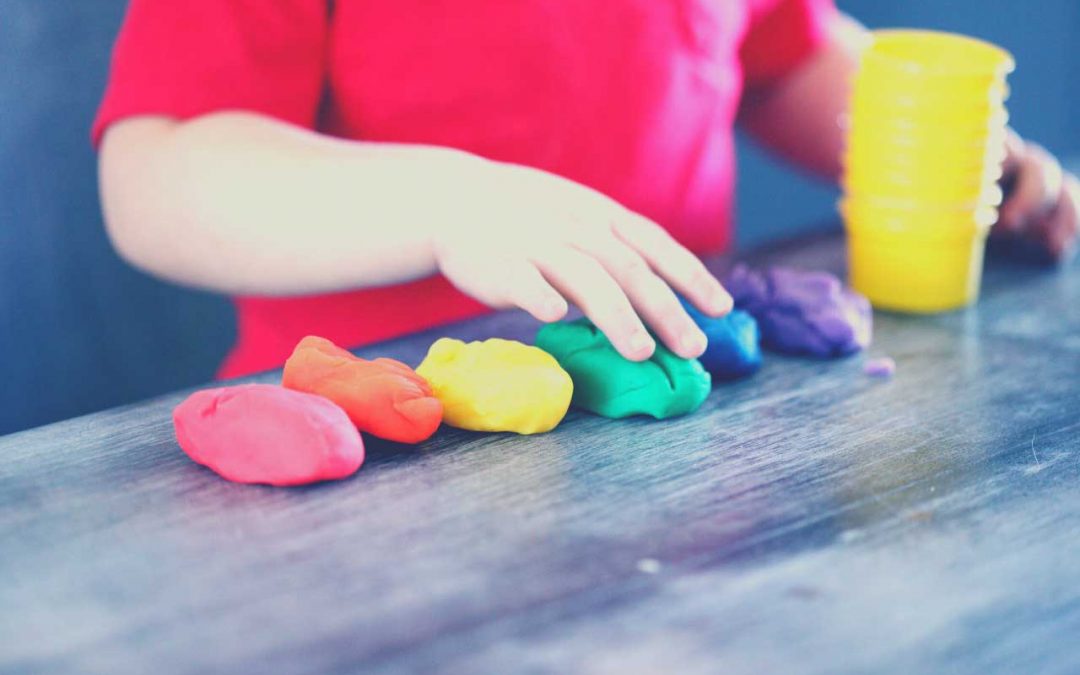It is well known that engaging in play with a child is a great way for them to learn about new topics and experiences, but research has shown that engaging children in the exploration and encouraging explanation is a great way for children to learn about new things at their own pace, as well as improving their ability to take on new tasks without their parents troubleshooting for them.
Research has shown that children use both explanation and exploration when learning, and often one encourages more of the other and so on. However, researchers at The University of Texas in Austin have examined how simple cues from parents and caregivers can influence the learning behaviour of children through either explaining or exploring.
Essentially, when parents and caregivers interact with children through language, whether that be by providing simple tasks or suggesting new activities to try, the child is then given the opportunity to explore and work out a solution for themselves. While playing with the child is fine, the parent should not dominate the play.
Encouraging explanation
Young children naturally have many questions about the world they live in, wanting to know everything from how the carrot on their plate is grown through to why they need to sleep at night and how cars work. The explanation will often encourage exploration as children will want to put that newfound knowledge to the test – they may want to grow their own veggies or explore how their toy cars work (sometimes by taking them apart).
Encouraging exploration
Children are natural explorers and you can assist in their learning by asking questions and making comments while they are in the process of exploring their surroundings. Asking questions like “What do you think will happen when….” and “I wonder why….” can get them wanting to further explore to find the answer. This often turns into explanation when they come to you wanting to investigate further, asking lots of questions and expecting lots of answers.
Children should be encouraged to explore, especially through play as it helps them learn and develop socially, physically, emotionally and mentally. Exploring in the early years will help them get ready for and lay the groundwork for more formal education as they get older.
How does discovery help development?
As we know as adults, discovering new facts or a new way to do something helps us develop new skills or a new way of completing a task more efficiently. Children are much the same, however, discovery through play is an important part of their development, whether it be structured or unstructured play. It can help children:
- develop knowledge, confidence, curiosity and foster experience
- learn through trying new things, asking questions and answering questions
- grow their language, cognitive thinking, decision making and planning skills
The importance of play
There are plenty of physical benefits to play for development for children of all ages, however, some of the biggest benefits of play come in the form of cognitive development, and brain and skill development.
Free play or even suggested activities is essential for brain development. In a cognitive sense, it helps develop confidence, intelligence and the ability to articulate their thoughts, while the brain and skill development side can help develop language, reasoning, autonomous thinking and problem-solving. Play, whether free or structured in some form, allows children to learn by discovery and can help develop their creativity and free-thinking, as well as teaching them about consequences and risk.
The skills that a child learns through play all come back to developing explanation and exploration skills; for a child, play is a great way to encourage learning, development and discovery of the world around them.
At Treasured Tots we use an adaptation of the Reggio Emilia approach. This means our educators are encouraged to allow our children to guide the day to day curriculum based on their interests and curiosities. Our classroom environments, both indoors and out, have been set up to allow children to explore the work around them, while our educators will encourage asking and answering questions to help the children learn.
We’d love to discuss how we can assist both you and your child in their continuous development using the exploration and explanation methods. Give us a call to set up a meeting or feel free to have a quick chat about your child’s progress when you pick them up.
Simone O’Brien is the founder of the Treasured Tots Child Care network in Perth, WA. After first starting a daycare in Melville, she couldn’t help notice the constant enquiries, interest and rapid growth of the waiting list for quality education and care in the area. With the support of her husband, she has grown Treasured Tots into a quality early education child care network, with locations across Perth, in Fremantle, Mandurah and Bibra Lake.




